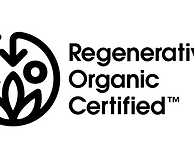Contact us

CERTIFICATIONS
Social and environmental
Certifications
REACH

REACH is a regulation of the European Union, adopted to improve the protection of human health and the environment from the risks that can be posed by chemicals, while enhancing the competitiveness of the EU chemicals industry. ... REACH stands for Registration, Evaluation, Authorisation and Restriction of Chemicals.
ROC - Regenerative Organic Certification

Regenerative Organic Certified (ROC) is a revolutionary new certification for food, fibre, and personal care ingredients. ROC farms and products meet the highest standards for soil health, animal welfare, and farmworker fairness.
RSB - Roundtable for Sustainable Biomaterials

Demonstrate your commitment to a sustainable bio-economy with RSB certification. Certification to the RSB Standard covers the production of any bio-based feedstock, biomass-derived material and any advanced fuel and material, as well as complete supply-chains and novel technologies.
The Roundtable on Sustainable Biomaterials (RSB) is an international multi-stakeholder initiative that brings together farmers, companies, non-governmental organisations, experts, governments, and
inter-governmental agencies concerned with ensuring the sustainability of biomass and biomaterial production and processing.
The certification system is based on sustainability standards encompassing environmental, social and economic principles and criteria.
Recycled claim standard (RCS)

The Recycled Claim Standard (RCS) is a voluntary material content claim standard to track recycled raw materials through the supply chain to give credibility to recycled content claims on products.
The RCS (Recycled Claim Standard) is used as a chain of custody standard to track recycled raw materials through the supply chain. The RCS uses the chain of custody requirements of the Content Claim Standard.
The RCS verifies the presence and amount of recycled material in a final product. This happens through input and chain-of-custody verification from a third party. It allows for the transparent, consistent and comprehensive independent evaluation and verification of recycled material content claims on products.
Responsible Wool Standard (RWS)

The Responsible Wool Standard (RWS) provides an opportunity for farmers to demonstrate their best practices to the public, and a means for brands and consumers to have the certainty that the wool products they buy and sell are in line with their values.
The RWS is a voluntary global standard that addresses the welfare of sheep and of the land they graze on. The RWS provides verification of the practices that are happening at farm level, giving brands a clear solution that will allow them to make claims about their wool sourcing with confidence. The standard was developed by an international working group through an open and transparent process.
SA8000

Sustainability SA 8000 - Certification - Social Accountability. SA 8000 is an international certification standard that encourages organisations to develop, maintain and apply socially acceptable practices in the workplace.
STeP by OEKO-TEX®

STeP by OEKO-TEX® is an independent certification system for brands, retailers and manufacturers from the textile and leather industry. Certification is suitable for production facilities at all processing stages who want to communicate their environmental measures externally in a credible and transparent way.
Soil Association

Any food product sold as 'organic' in the EU has to comply with a set of Standards. The Soil Association symbol is a recognised and trusted mark of organic certification internationally, and as a certification body they deliver certification to some of the highest organic standards.
TOXFMD Screen Chemistry

ToxServices established Screened Chemistry in 2014 in conjunction with Levi Strauss & Co. with the goal of advancing public health and environmental protection around the world. Screened Chemistry is the concept of identifying the use of safer alternatives while eliminating hazardous chemicals in the textile industry. In a Screened Chemistry approach, human health and environmental impacts are fully evaluated so dangerous chemical substitutions are avoided.
Levi Strauss & Co., Nike Inc., H&M and C&A have agreed to share and align their efforts surrounding safer textile chemistries as part of their work with the ZDHC Foundation. ToxServices’ Full Materials Disclosure® Program (ToxFMD®) is an integral part of the Levi Strauss & Co. Screened Chemistry Program and supports hazard reduction and informed substitution.
ToxFMD Screened Chemistry® Program is their flagship certificate program to demonstrate conformance with Screened Chemistry requirements. ToxFMD Screened Chemistry® provides a streamlined, affordable assessment that screens textile treatment formulations and allows ZDHC brands to easily identify safer alternatives and fulfil their commitment to using safer textile auxiliaries.
USDA

Organic certification requires that farmers and handlers document their processes and get inspected every year. Organic on-site inspections account for every component of the operation, including, but not limited to, seed sources, soil conditions, crop health, weed and pest management, water systems, inputs, contamination and commingling risks and prevention, and record-keeping. Tracing organic products from start to finish is part of the USDA organic promise.